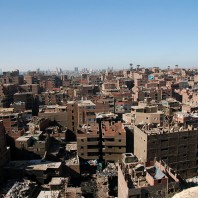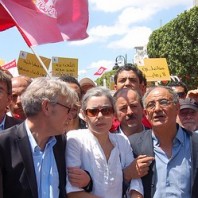BIC’s MENA program has prepared an updated list of the projects that the World Bank is currently funding or preparing to fund in Egypt. The list provides a brief description of each project, in addition to an explanatory diagram that summarizes the World Bank’s project cycles.
On a recent visit to Washington, DC, representatives of the Tunisian General Labor Union (UGTT) met with senior officials at the World Bank including the country director for Tunisia to discuss the Bank’s involvement in the country generally and its engagement with the union particularly.
On June 26, 2012, BIC and YOHR committed to coordinating their activities related to encouraging civil society participation in World Bank activities in Yemen.
The World Bank makes public its interim strategy for Tunisia after the government agrees to early disclosure. On June 27, 2012 the World Bank made public its interim strategy for Tunisia for the years 2013-2014 which outlines its engagement in the country during this transitional period. The Bank’s Board of Executive Directors is set to …
As the fate of a World Bank loan to support reforms in Egypt remains unclear, civil society is taking proactive measures to ensure that future loans to the country are transparent.
BIC outlines the World Bank’s current activities in Yemen and proposes that civil society engagement is necessary now more than ever.
The following interview highlights the work of Tunisian civil society activist Adel Beznine in the area of transparency in Tunisia.
In a meeting with Bank staff, Egyptian civil society and affected residents of North Giza farming communities raised concerns about a power project’s impacts on local livelihoods and the environment.
The Bank Information Center welcomes the World Bank’s initative to open up and create a larger space for civil society from the MENA region.
On June 9, 2011, Management at the World Bank submitted to the Inspection Panel three water studies it had commissioned related to the Greater Beirut Water Supply Project. In a March 2011 meeting with the Bank’s Board of Directors which took place after the Panel recommended further investigation into the potential harms of this project, the Panel agreed to wait for the results of the above-noted studies to decide whether or not an investigation of the project would still be warranted. The three studies focused on the cost, quality and availability of water associated with the project as these were identified by the Panel as the main issues warranting investigation.


